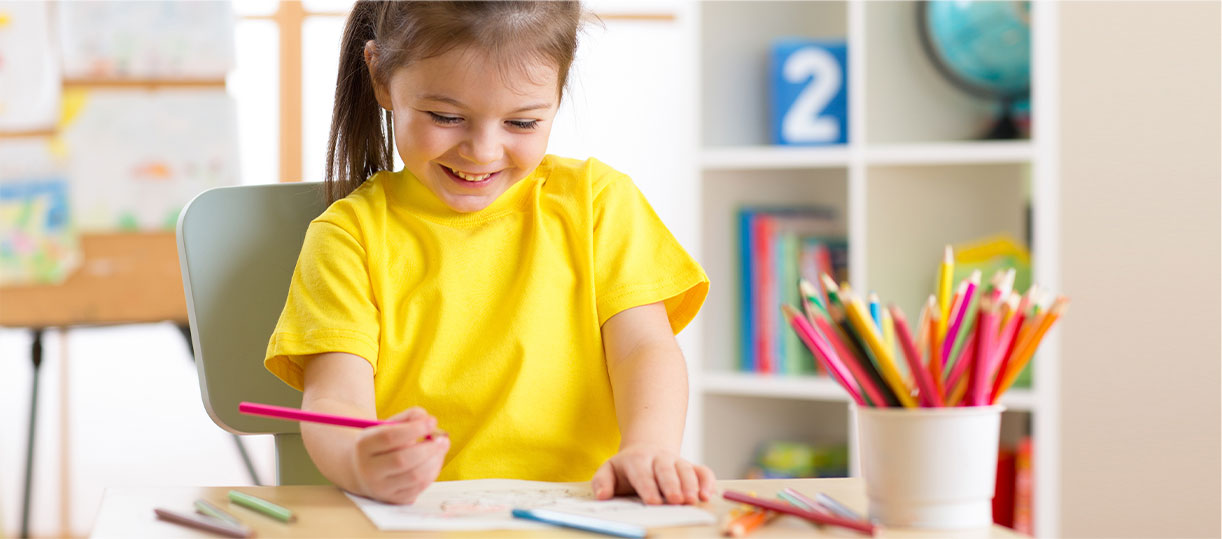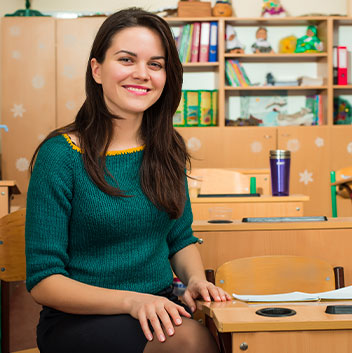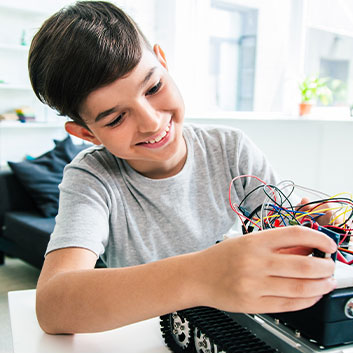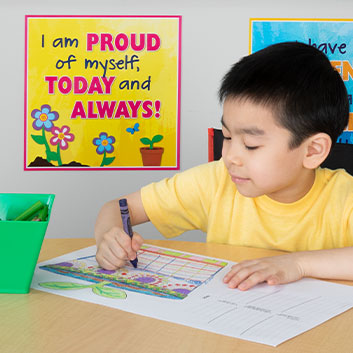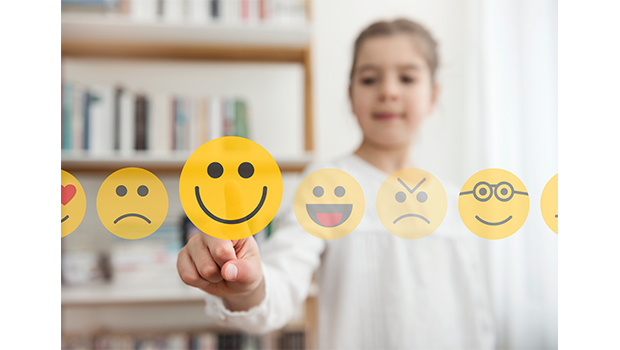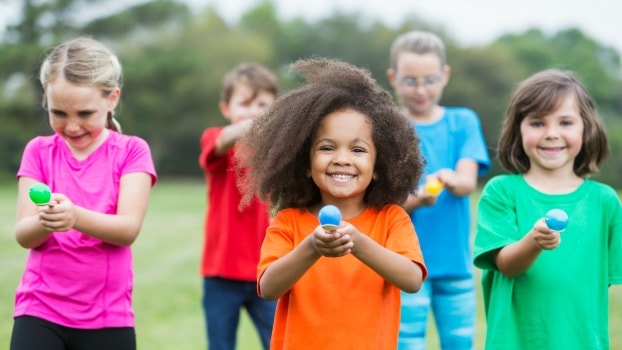Activities & Resources for Social-Emotional Learning
For Lifelong Success
Shop Now
Students find themselves having to deal with emotions that they may not be able to recognize or understand. Whether they are frustrated because they don’t comprehend a subject, are having issues with friends or family, or are sad because of a loss of pet, they can bring these feelings into the classroom with them.
If they don’t have self-awareness or knowledge about what they are going through, they may react to uncomfortable situations in the only way they know: by acting out. To ensure that your students are achieving academically and emotionally, making them aware of emotions is beneficial. Having the right social-emotional learning materials can help with that endeavor.
Social emotional learning (SEL) skills are key to success in and out of the classroom. When you shop online at Really Good Stuff®, you will discover an inventive and appealing array of social-emotional learning activities for kids. Our social and emotional learning activities and products help teach resilience, empathy, and positivity.
Shop Social Emotional LearningFrequently Asked Questions
Social-emotional learning, or SEL, is a philosophy and method to help students better understand emotions, feel those emotions fully and show empathy for others. By finding constructive ways to develop these qualities, students can become more productive, self-aware and socially aware.
This means using SEL methods and practice as part of classroom teachings. Embedding SEL and using its strategies into regular lesson plans allows you to teach social-emotional development as it relates to present challenges.
There are five core components of SEL:
- Self-awareness
- Self-management
- Responsible decision-making
- Relationship skills
- Social awareness
These components are interconnected and developing one area frequently involves development in other SEL areas.
Research shows that teaching SEL has a positive impact on many outcomes and life skills, including academic performance, healthy relationships, personal responsibility and overall mental wellness. Read this customizable CASEL presentation for more about the benefits of SEL.
Research has shown that mental health issues are on the rise among kids and teens. By teachers helping meet students’ social and emotional needs, they are more likely to be successful academically. Research has shown that SEL can boost classroom achievement by 11 percentile points on average.
Here are just some of the ways you can promote SEL through daily activities:
- Journal writing
- Daily greetings and meetings
- Practicing problem-solving skills
- Giving students jobs and responsibilities
- Encourage positive self-talk
- Read-aloud sessions
Even if you’re teaching a subject that doesn’t seem to relate to SEL, there are several strategies for incorporating SEL methods, including:
- Being present and observant
- Creating a supportive atmosphere
- Starting and encouraging discussion
- Providing opportunities to practice SEL skills
SEL doesn’t just aid academic learning. The lifelong skills it develops are useful far after someone’s classroom time ends. By being more in-tune with themselves and others, students are more likely to succeed in their professional and personal lives.
Studies have shown that strong emotional assets have a positive correlation to better well-being up to 18 years after an intervention — and they are consistently effective across all demographic and geographic backgrounds. While it is best when designed for specific contexts and cultures, the overall SEL philosophy supports people globally.
In addition to the five core areas mentioned above, here are some other lifelong skills that can be developed through SEL:
- Goal-directed behavior
- Optimistic thinking
- Displaying self-control
- Positive self-image
- Asking for help when needed
- Listening and paying attention
- Kindness towards others
SEL may be even more valuable for online learning, because it creates a virtual support system that is often taken for granted in a classroom setting. A few ways to implement SEL for online classrooms include:
- Make SEL teaching more explicit
- Work to build community
- Assign self-care assignments
- Teach a growth mindset
- Get students' families involved
The framework of social-emotional learning is referred to as the "CASEL wheel". (CASEL is the Collaborative for Academic, Social and Emotional Learning.) The wheel's center has the five core SEL competencies. Circling the core are the four primary settings where students live and grow: Classrooms, Schools, Families & Caregivers and Communities.
Created by and for Teachers
The experienced educators on our team work hand-in-hand with current classroom teachers to carefully create and curate social-emotional learning kits aligned with:
- CASEL
- Ruler
- Start Empathy
Improving social-emotional learning competencies can benefit everyone. Teaching empathy to elementary students and others can improve the learning environment for all. Studies show social and emotional learning results in a 13% rise in academic achievement and 20% less bullying of students with disabilities. Simply put, social-emotional learning activities for elementary school students and others is a win-win.
Success in School, Work and Life
Created by teachers for teachers, these social-emotional learning posters and other products are designed to help students develop the social and emotional skills they need to be successful academically, to be productive in their future jobs and to approach life with resilience and optimism.
With a social-emotional learning curriculum and SEL classroom decorations, elementary school kids can reap long-term benefits that they can carry into their adult years. In fact, 79% of employers say social-emotional skills are the most important qualities for job success.
For School and Home
Whether you use our character-education products in the classroom as part of your social-emotional learning lesson plans or send a social skills activity for kids for use at home, our social-emotional learning games and educational aids bring students, teachers and families together in SEL activities that promote:
- Understanding and managing emotions
- Setting and achieving goals
- Building and maintaining positive relationships
- Mindfulness
If you’re wondering how to measure social-emotional learning, our products include fun assessment tools like self-assessment stamps that build self-esteem and empathy. Being self-aware is a good thing, and it ensures that students have the skills necessary to function no matter what emotions might overtake them in the classroom or in life.
Shop Social Emotional Learning
[All statistics cited.] Retrieved February 21, 2020,
from Committee for Children®


